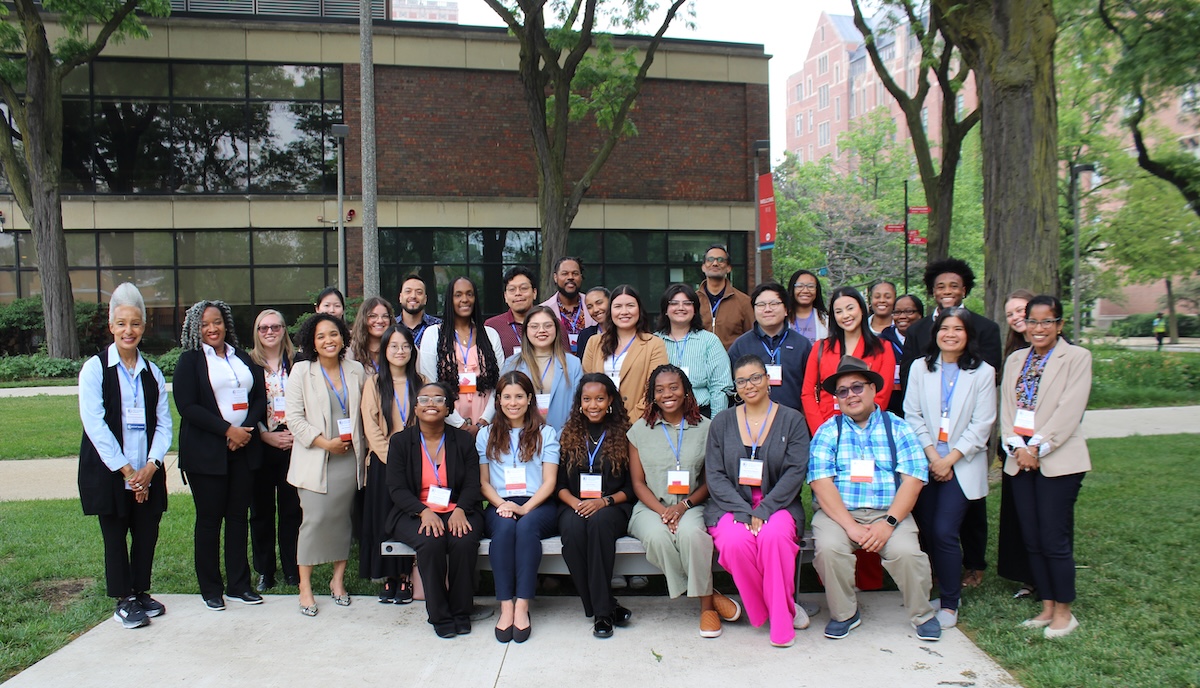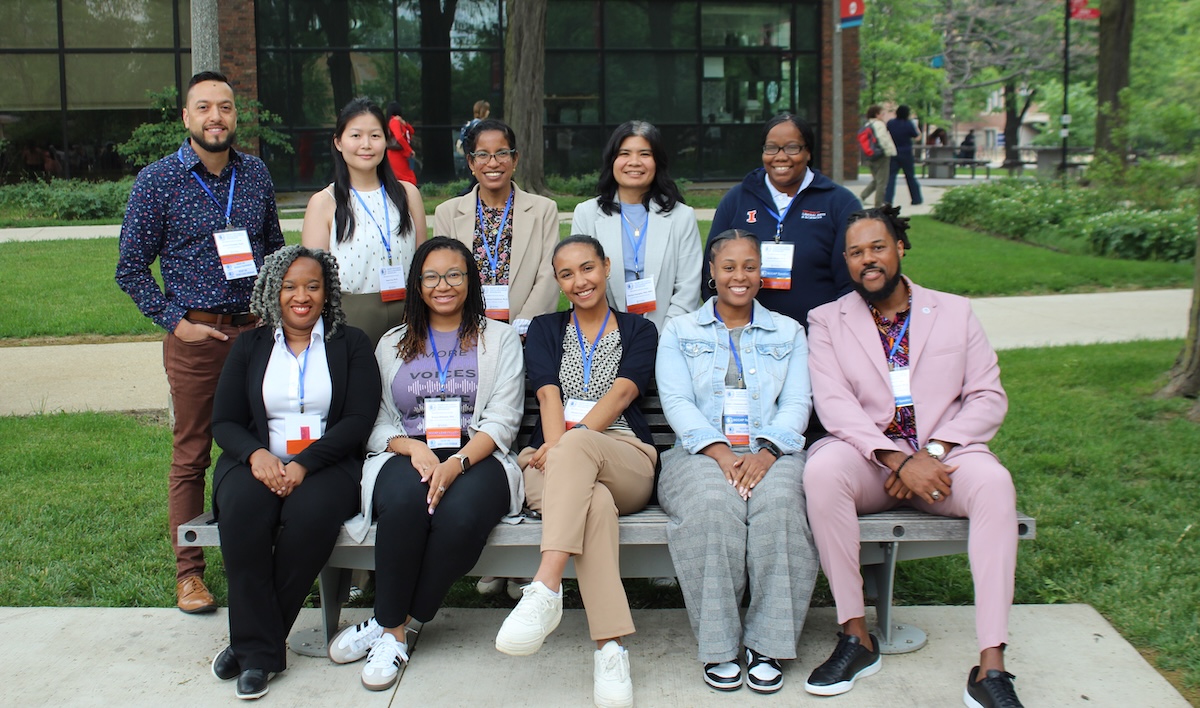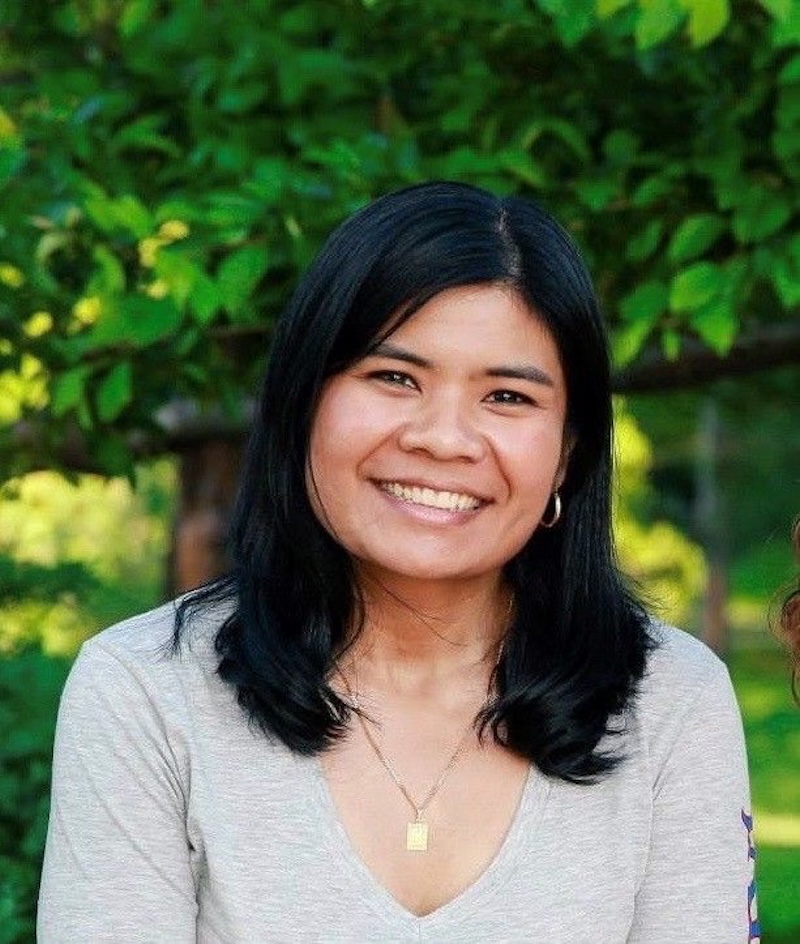Leading into the Future with SCCAP LEAD Institute
Leading into the Future with SCCAP LEAD Institute
By Erlanger “Earl” Turner, PhD & Marilyn Sampilo, PhD, MPH
Co-Chairs, Leadership Education to Advance Diversity (LEAD) Institute
In 2021, the American Academy of Pediatrics, American Academy of Child and Adolescent Psychiatry and Children’s Hospital Association jointly declared a National State of Emergency in children’s mental health. U.S. Surgeon General, Vivek Murthy, also issued an advisory urging action to address the growing mental health crisis among youth (OSG, 2021). While these actions certainly brought increased awareness of the youth mental health crisis and steps towards addressing it, the crisis continues.
Recent data trends indicate that teens continue to report increasing mental health challenges, experiences of violence, and suicidal thoughts and behaviors, with notable increases among girls and LGBTQ+ youth (CDC, 2023). In 2023, 40% of U.S. high school students reported persistent feelings of sadness or hopelessness in the past year and 20% reported seriously considering suicide in the past year (CDC, 2024). Data also shows that youth of color experienced heightened risks for mental health difficulties. Risks may be due to racialized violence towards Black youth, anti-Asian hate, and politicization of immigration for Latinx families (Prichett et al., 2024). Furthermore, only 58.5% of high school students report they always or usually receive the social and emotional support they need (CDC, 2025). Given the recent attention on the epidemic of loneliness and social isolation and the particular importance of social support during this critical developmental period, this finding is particularly concerning.
Challenges and Opportunities to Support Youth Mental Health
There are various challenges facing psychology in supporting today’s youth. Historically, psychology has examined and documented disparities in the prevalence of mental health conditions and in treatment engagement among marginalized youth (Metzger et al., 2023). Recent changes in the national landscape have limited funding for research in many of these areas and have limited relevant diversity, equity and inclusion initiatives. This will substantially impact psychology’s ability to address these critical issues and to maintain the progress that has been achieved over the last decade. For emerging and young professionals, in particular, those who have envisioned a career path focused on addressing disparities and promoting equity, this shift in the landscape and national priorities has been wildly disorienting and challenging to navigate. With a dearth of supportive pathways forward, ECPs focused on DEI are called to lead. Additionally, with the increasing proliferation of health information available through social media and health influencers, psychology is tasked with disseminating information in increasingly more creative and innovative ways to ensure that evidence-based information is more readily available and accessible to the masses.
As a profession, we can use our scientific knowledge to advocate for inclusive policies and utilize clinical best practices to meet the needs of the most vulnerable. It is critical that we leverage opportunities from a population health lens to support communities. This will allow us as a field to address the needs of many communities while minimizing the focus only on those with a diagnosis (Abrams, 2025). Many youth are not formally diagnosed or able to access care due to barriers, so this is particularly important. We also have to move beyond disseminating our research only in academic journals. This limits access to relevant scholarly resources for practicing clinicians who may not have access to articles and research that is behind a paywall. It is necessary that we begin to use social media and technology in various ways to reach professionals and support communities (Turner et al., 2021).
SCCAP LEAD Institute Meets a Crucial Gap
In 2019, SCCAP made an important investment in diversifying child and adolescent psychology. The Leadership Education to Advance Diversity (LEAD) Institute held its inaugural conference to support students and ECP’s from under-represented and marginalized backgrounds. Since the LEAD institute was founded, its mission has been to provide professional development, networking, and leadership skills to help advance the professional and leadership pipeline. To date, more than 100 LEAD fellows have completed the program. Many of them have also served on SCCAP committees, state psychological associations, and ethnic psychological associations.
Most recently, the 2025 LEAD Institute was held in Chicago and welcomed thought leaders, researchers, and innovative psychologists including Drs. Roberto Abreu, Raquel Martin, Ali Mattu, Robyn Gobin, and Olivia Moorehead-Slaughter who shared their expertise with the new cohort. Participants in the program had an opportunity to learn about topics such as translating science into the community, finding your why and engaging in social media as a psychologist, exploring non-traditional careers, and advancing DEI in psychology during challenging times.

Call to Action
The psychology profession has made substantial strides in inclusivity and diversity. However, we must recognize that we are at a critical moment in the profession. There are several ways in which SCCAP and the profession can play a vital role in navigating professional issues in times of crisis:
- Remain mission focused. While there may be difficulties navigating the current landscape, it is critical that we remain focused on supporting the membership and the workforce. In particular, it is important to highlight diverse perspectives and inclusive social identities in science and practice.
- Foster spaces for critical reflection. In times of crisis, it can be easy to avoid difficult conversations due to the emotional labor required to navigate strong emotions. It is more important than ever to have healthy dialogues around diversity and inclusion. Not only to improve the communities that we serve but also to provide spaces where emerging professionals can be supported and feel a sense of belonging.
- Expand our approaches to training. Prepare the next generation of psychologists to navigate shifting landscapes. Create intentional dialogue in the classroom on diversity and inclusion, integrate innovative approaches to disseminating knowledge beyond journals, and equip trainees to lead with equity, creativity, and resilience in practice and research.

References
Abrams, Z. (2025, September 1). How psychology practices population health. Monitor on Psychology, 56(6). https://www.apa.org/monitor/2025/09/population-health
Centers for Disease Control and Prevention (2023). U.S. Teen Girls Experiencing Increased Sadness and Violence. Retrieved from https://www.cdc.gov/media/releases/2023/p0213-yrbs.html
Centers for Disease Control and Prevention. (2024). Youth Risk Behavior Survey Data Summary & Trends Report: 2013–2023. Retrieved from https://www.cdc.gov/yrbs/dstr/.
Centers for Disease Control and Prevention (2025). Data and Statistics on Children’s Mental Health. Retrieved from https://www.cdc.gov/children-mental-health/data-research/index.html
Metzger, I. W., Turner, E. A., Jernigan-Noesi, M. M., Fisher, S., Nguyen, J. K., Shodiya-Zeumault, S., & Griffith, B. (2023). Conceptualizing community mental health service utilization for BIPOC youth. Journal of Clinical Child & Adolescent Psychology, 52(3), 328-342. http://dx.doi.org/10.1080/15374416.2023.2202236
Office of the Surgeon General (OSG). (2021). Protecting Youth Mental Health: The U.S. Surgeon General’s Advisory. US Department of Health and Human Services. Retrieved from https://www.hhs.gov/sites/default/files/surgeon-general-youth-mental-health-advisory.pdf
Prichett, L. M., Yolken, R. H., Severance, E. G., Carmichael, D., Zeng, Y., Lu, Y., … & Kumra, T. (2024). COVID-19 and youth mental health disparities: intersectional trends in depression, anxiety and suicide risk-related diagnoses. Academic pediatrics, 24(5), 837-847. http://dx.doi.org/10.1016/j.acap.2024.01.021
Turner, E.A., Jernigan-Noesi, M., & Metzger, I. (2021). Confronting anti-Black racism and promoting social justice: Applications through social media. In K. Cokley (Ed.). Making Black Lives Matter: Confronting anti-Black racism. Cognella.

Erlanger “Earl” Turner, PhD
Co-Chair, Leadership Education to Advance Diversity (LEAD) Institute

Marilyn Sampilo, PhD, MPH
Co-Chair, Leadership Education to Advance Diversity (LEAD) Institute
More From Fall 2025
More From Fall 2025
President’s Column
By Regine Galanti, PhD
In Focus: Youth Suicide
By Julie Cerel, PhD
Expert Recommendations: Perinatal Mental Health
By Colleen Fields, PhD
APA 2025 in Denver: Giant Bear, Distinguished Career, & More
By Sarah Dickinson, PhD & Kelsie Okamura, PhD
The Student View: Updates From the SCCAP Programming Committee
By Katie Moskowitz, Will Morgan, & Annika Quam
Congratulations to Our Student Members on Graduation!
LEADing into the Future with SCCAP LEAD Institute
By Erlanger Turner, PhD & Marilyn Sampilo, PhD, MPH
SCCAP Election Results
SCCAP Seeks Nominations for Upcoming Board Positions
Positions Begin January 1, 2027
JCCAP’s 2025 Highlights
By Andres De Los Reyes, PhD
Update from SCCAP Representatives to APA Council
By Stephen Hupp, PhD & Mary Louise Cashel, PhD
SCCAP Fellows Committee Update
By Martha C. Tompson, PhD
Join Us in Shaping the Future of Membership!
By Nicole Lorenzo, PhD
New Procedures for Joining or Renewing SCCAP Membership!
AIRS SIG Update
By Elisabeth Frazier, PhD
Clinical Child and Adolescent Practice SIG Update
By Megan Lawson, PsyD, ABPP
Summer Treatment Program SIG Update
By Katie Hart, PhD & Sarah Tannenbaum, PsyD, ABPP
More From Fall 2025
More From Fall 2025
President’s Column
By Regine Galanti, PhD
In Focus: Youth Suicide
By Julie Cerel, PhD
Expert Recommendations: Perinatal Mental Health
By Colleen Fields, PhD
APA 2025 in Denver: Giant Bear, Distinguished Career, & More
By Sarah Dickinson, PhD & Kelsie Okamura, PhD
The Student View: Updates From the SCCAP Programming Committee
By Katie Moskowitz, Will Morgan, & Annika Quam
Congratulations to Our Student Members on Graduation!
LEADing into the Future with SCCAP LEAD Institute
By Erlanger Turner, PhD & Marilyn Sampilo, PhD, MPH
SCCAP Election Results
SCCAP Seeks Nominations for Upcoming Board Positions
Positions Begin January 1, 2027
JCCAP’s 2025 Highlights
By Andres De Los Reyes, PhD
Update from SCCAP Representatives to APA Council
By Stephen Hupp, PhD & Mary Louise Cashel, PhD
SCCAP Fellows Committee Update
By Martha C. Tompson, PhD
Join Us in Shaping the Future of Membership!
By Nicole Lorenzo, PhD
New Procedures for Joining or Renewing SCCAP Membership!
AIRS SIG Update
By Elisabeth Frazier, PhD
Clinical Child and Adolescent Practice SIG Update
By Megan Lawson, PsyD, ABPP
Summer Treatment Program SIG Update
By Katie Hart, PhD & Sarah Tannenbaum, PsyD, ABPP
